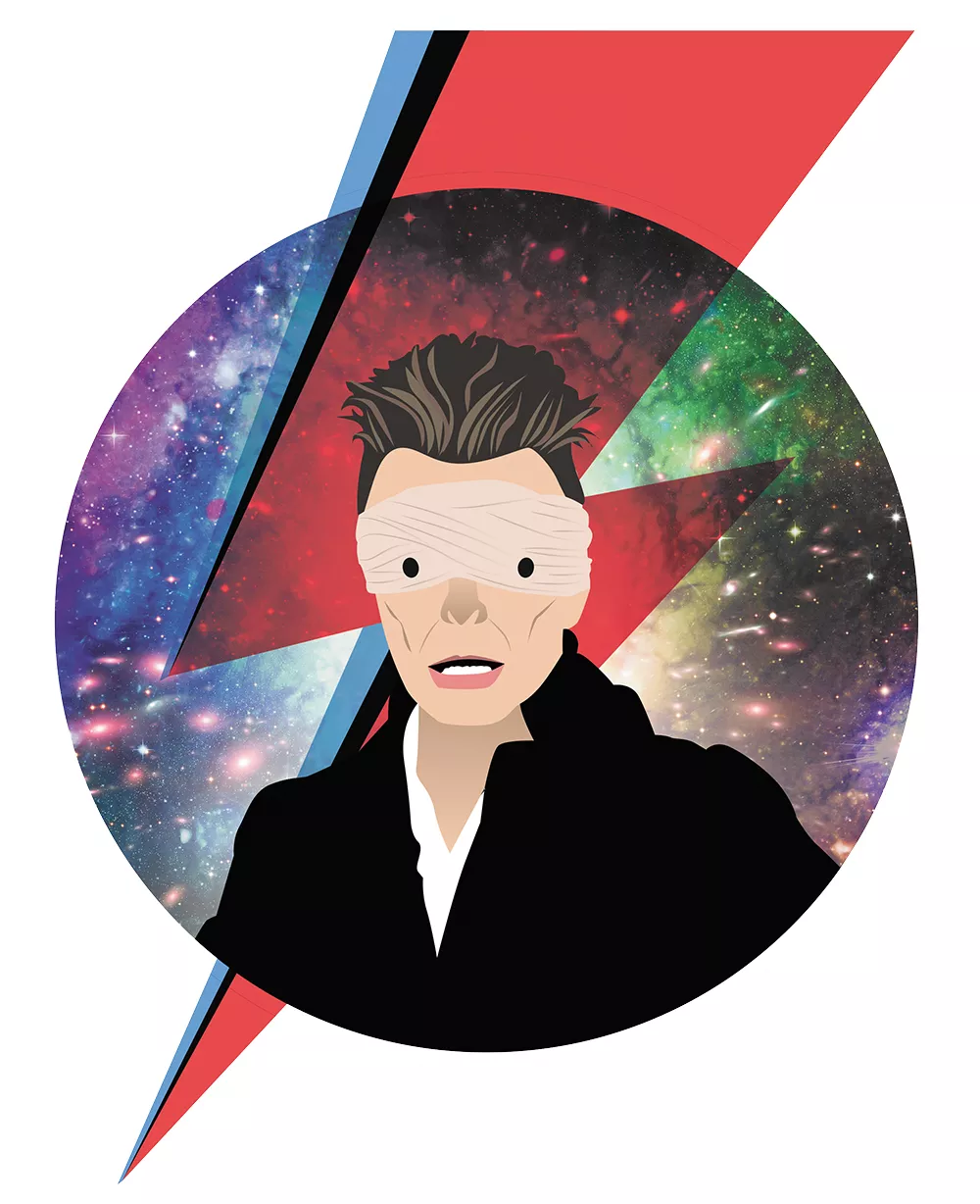Critical acclaim, commercial success, the respect of his peers — it's safe to say that David Bowie lived a creative and professional life anyone would envy.
Watching the events surrounding his death, it's also clear that the man knew how to plot his ultimate demise far better than the average rock star.
The news that Bowie died was as surprising as hearing about the passing of Kurt Cobain or John Lennon, but only because Bowie kept his cancer a secret. That allowed him to plan his departure from the world as the ultimate art project and promotional campaign for his new album, Blackstar.
In November, he revealed a trippy 10-minute video for the album's title track, with Bowie floating in the sky and singing from a hymnal marked with his album's cover image. On Jan. 7, Bowie released a clip for "Lazarus," featuring the lyric "Look up here, I'm in heaven," before Bowie levitates out of a hospital bed.
All of the crazy imagery and ethereal sounds filling Blackstar just seemed like Bowie being Bowie before word of his death arrived Jan. 10. He's a guy who managed to turn avant-garde taste into mainstream success constantly during his career. Blackstar suddenly became final proof of his genius.
The public outpouring is inevitable when a celebrity dies. Think Michael Jackson. Or Elvis. Or Cobain. This year's Grammys featured an endless series of medleys dedicated to the recently deceased.
Death turned into a sales boom for Bowie. Blackstar became his first No. 1 album in America, according to Billboard magazine, which also noted that for the week of his death, Bowie's sales jumped more than 5,000 percent from the week before, and five of his albums followed Blackstar onto the charts.
Alexander Edmonds works at Garageland and used to work at Portland's Everyday Music.
"The little Bowie we had, we sold," he says of Garageland, noting that at his old job, "Whenever a big celebrity died, we would stock up. It was kind of our business model. When Whitney Houston died, we sold out of everything."
Bob Gallagher owns 4,000 Holes in Spokane. He says in his experience, "death doesn't increase sales." The recent deaths of Scott Weiland, Motörhead's Lemmy Kilmister and Natalie Cole didn't lead to heavy traffic at his store.
"But Bowie — yes," Gallagher says. "We've been selling lots of Bowie. Bowie has so much stuff that even the hard-core fans had a hard time keeping up with him."
Gallagher says the death of the singer led to some serious discussions and listening sessions at the store — "we played Bowie for days" — that gave him a new appreciation of the Thin White Duke's work. And the way Bowie plotted his final days leaves him in some awe.
"I've never seen anyone do [death] like Bowie," Gallagher says.
I'm part of the reason Bowie's sales skyrocketed after his death. I already owned a few albums, and the onslaught of documentaries, videos on social media and obituaries led to me buy Let's Dance from my MTV childhood, Low from Bowie's so-called "Berlin Trilogy" and The Next Day, the brilliant collection released three years ago to little fanfare, even though it was his first new release in a decade.
I have a tendency to buy things from artists who just died, and judging by Bowie's sales, I'm not alone. I added to my small collection of Motörhead when I heard that Lemmy died at the end of December, and picked up an Earth, Wind & Fire track when founder Maurice White died in early February. It's not limited to music, either; when Philip Seymour Hoffman died, my DVD collection grew to include Capote, Doubt and The Savages.
I asked Shann Ferch — a trained psychologist and social scientist best known locally as author Shann Ray — why people tend to wallow in a recently deceased artist's work. Turns out he's been going through the same thing with one of his favorite poets, C.D. Wright, who died just two days after Bowie.
"These people have given something to us in our lives," Ferch says. "Even though we didn't know them, we get a sense of knowing someone, or of someone knowing you" through their work. "They were kind of giving us a love letter in their music," and by buying their work, we're "further embedding and enjoying their love in our lives."
Clearly Bowie generated a lot of love in the world, but he's not alone. Six weeks after his death, Billboard's album chart still features three Bowie albums, as well as 17 albums by other dead artists. People love Bowie, but they also still love Michael. And Amy. And 2Pac. And Marley. And Freddie. And Eazy... ♦

